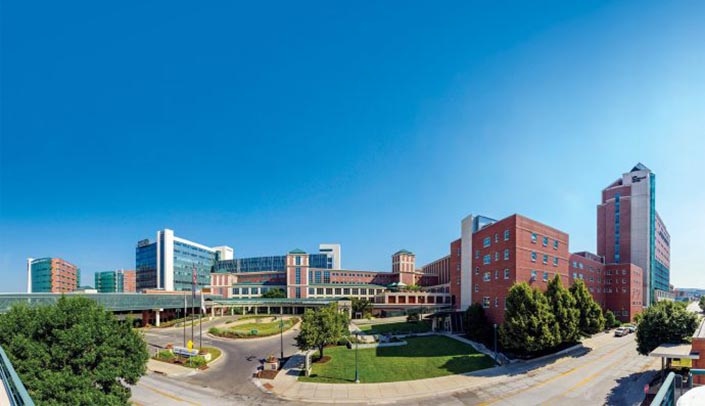When a disaster strikes, the number of patients needing urgent, lifesaving care can often overwhelm local hospitals. But, thanks to a $3 million grant from the U.S. Department of Health and Human Services’ Office of the Assistant Secretary for Preparedness and Response (ASPR), Nebraska Medicine will be demonstrating how a new Regional Disaster Health Response System could meet these needs. The goal: to provide trauma, burn or other specialty care during a national emergency, and in turn, save more lives.
Nebraska Medicine and Massachusetts General Hospital in Boston received the grants from ASPR’s Hospital Preparedness Program to conduct pilot projects that show the potential effectiveness and viability of a Regional Disaster Health Response System.
“This demonstration grant provides an incredible opportunity to further advance preparedness in our state,” said Shelly Schwedhelm, MSN, RN, executive director of emergency management and biopreparedness at Nebraska Medicine. “The activities of the grant will create a sustainable model of communication, coordination, and collaboration between Nebraska coalitions, EMS, public health, health care, emergency management and various other community organizations and resources. We have the opportunity to innovate and create a model that will not only serve Nebraskans but will be an example for others across the nation.”
Schwedhelm is the lead on the grant for Nebraska Medicine. James Lawler, M.D., associate professor of infectious diseases at the University of Nebraska Medical Center, is the principal investigator on the grant.
The Regional Disaster Health Response System will build on local health care coalitions and trauma centers, creating a tiered system of disaster care. The system is envisioned to integrate local medical response capabilities with emergency medical services, burn centers, pediatric hospitals, public health labs, and outpatient services to meet the overwhelming health care needs created by disasters.
“This is a clear demonstration of how our disaster preparedness skills are viewed,” said Jeffrey P. Gold, M.D., chancellor of the University of Nebraska Medical Center and chair of the Nebraska Medicine board. “We have a proven track record. We are honored to be selected from among 19 outstanding applicants. My congratulations to all who made this grant a reality. We couldn’t be more proud.”
A panel of experts from professional associations, academia, and federal agencies selected Nebraska Medicine and Massachusetts General Hospital for the project.
“Nebraska Medicine is honored to receive this grant and the trust of national preparedness officials,” said James Linder, M.D., CEO of Nebraska Medicine. “We are confident our expertise will be an asset to other health care professionals and to the country as a whole.”
More than 31,000 health care organizations participate in health care coalitions nationwide, which are funded by the Hospital Preparedness Program. Coalitions create partnerships among health care facilities and providers in communities, primarily from the private sector, to prepare for disasters and respond.
In demonstrating a Regional Disaster Health Response System, each pilot project must:
- Build a partnership for disaster health response to support clinical specialty care;
- Align plans, policies and procedures for clinical excellence in disasters;
- Increase statewide and regional medical surge capacity;
- Improve statewide and regional situational awareness, such as the availability of hospital beds; and
- Develop metrics and test the regional system’s capabilities.
“Our nation faces real and serious threats that represent a looming risk to health care delivery,” said Robert Kadlec, M.D., HHS Assistant Secretary for Preparedness and Response. “This system offers a powerful way to form alliances and build specialized capabilities that save more lives in overwhelming, catastrophic emergencies. The system draws on the existing U.S. health care infrastructure, pulling together private sector and federal resources in a way that has never been done. I encourage all health care delivery facilities and providers to get involved.”

Congratulations!!! This is incredible news!
This is fantastic, but not surprising. Great work, Shelly and the entire team!